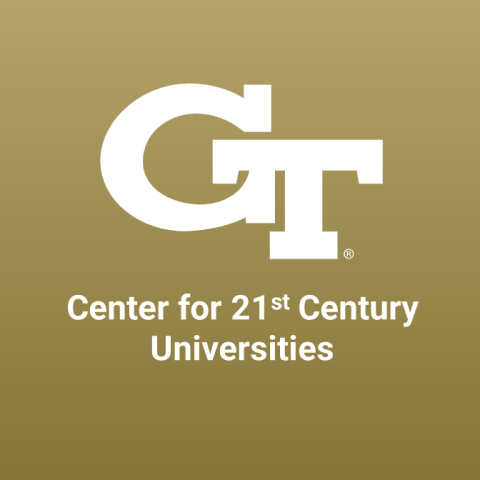
Engaging students with careers resources early and often
The campus career centre is often viewed as the place that helps students find a job after college. It is regularly used as a last-minute resource in the semester before graduation. And because the term “career” is mainly associated with full-time employment, a narrative has been created that students don’t need support right now and that they “have time to figure it out”.
The reality is that campus career centres should aim to teach students early on how to be quality candidates in all aspects of the job search process. We interact with students and their families at new student orientations for those who plan to attend Georgia Institute of Technology in the upcoming semester, and at campus preview days for prospective students, explaining the services offered by the centre and why they need to engage in our programmes starting from their first year.
- The top three ways to support international graduate employability
- Struggle, strength and growth: preparing students for the changing future
- How to support students considering self-employment
Based on our experience at Georgia Tech, we strongly believe that a career centre strategy must use the four stages of the continuous career development cycle – explore, prepare, engage and reflect – early on with students.
Encourage students to explore career options
Connecting with students early to drive curiosity has value both within their academic programmes and for their future careers. For career educators, interdepartmental collaboration, specifically with admissions and orientation teams, helps increase awareness and visibility to students before they arrive on campus.
To implement a culture of discovery for students, collaboration with campus partners through first-year and transfer seminar courses is essential. Since students often have many options and questions regarding career paths, career centres must provide tools to encourage this exploration.
Our team supports students through one-on-one coaching using tools such as MBTI, TypeFocus and the University System of Georgia’s Steppingblocks. We facilitate workshops and discussions on topics such as “major and career exploration”. Thanks to our partnership with the exploratory advising team, students have a place to ask questions related to academic programmes and possible changes to graduation progression. This process also allows students to interact with advisers, faculty, senior students and professionals from different fields.
Prepare students to look for a job
Career centres must offer students opportunities to prepare themselves for their job search. Students should have access to all resources from the first day of classes. For example, the centre can support first-year and transfer seminars to include résumé writing in their course. We have found that hosting in-person résumé-review days (where students receive feedback from employers), daily drop-in hours to discuss career development, and one-on-one appointments with career development advisers, career educators and specially trained student office staff better prepares students not only for future job searches but helps them to make sound career decisions.
We recognise that refining a résumé is a tiny part of the job search process, so we also host workshops on career development topics such as networking, interview technique and salary negotiations to increase student confidence when interacting with potential employers in formal and informal settings.
For us, feedback has been overwhelmingly positive, which suggests the need for increased early student engagement each semester. If students become active in their career development and job search process early in their academics, they have as much time as possible to explore career paths.
Engage with employers and networks
Engagement is one of the most active parts of the career development cycle; it puts the “explore” and “prepare” stages to work. For most of our students, the job search is employer-driven, where students rely heavily on an employer’s campus presence to land employment opportunities. But for some, the search will be more self-driven, where students may have to put in extra effort or may need additional assistance to identify opportunities and market their work skills.
A careers centre should have services available to support both approaches.
The employer-driven approach
We all know the saying: “It’s not what you know, it’s who you know.” Employer-driven approaches should include opportunities such as panel events, career fairs or on-campus tabling. In our case, these efforts typically target our in-demand programmes in areas such as technology and engineering. We offer our All-Majors Career Fair each fall, spring and summer semester. We have also engaged students through “boutique” fairs such as the Start-Up Career Fair, Government and Non-Profit Career Fair, the Building Construction Career Fair, and the Architecture and City and Regional Planning Career Fair.
The self-driven approach
Not all majors are created equal. Unfortunately, this means there is a limited understanding of some of our students’ backgrounds and capabilities. The career educator model was created in 2021 to level out the field. It aims to equip students in under-represented colleges such as the College of Design, the College of Sciences, and the Ivan Allen College of Liberal Arts with the tools for a more self-driven search and to market their talent. Career educators empower students whose job search may look different from their peers in more sought-after programmes. They may need skills such as networking, how to leverage professional or student organisations or to identify and highlight their abilities, understanding the hiring landscape for specific industries, and connecting with employers.
Career Treks provide year-round opportunities for students to visit companies to gain an in-depth understanding of the company from their first semester.
Teach students to reflect on their skills
In the reflection portion of the career development cycle, students ask themselves about their experiences to identify skills and interests better. Reflection allows students to challenge misconceptions they may have about their career goals and make necessary shifts without shame or criticism. Reflection puts students in a position of power and gives them the freedom to adjust their approach as needed so they are more fulfilled when choosing a career.
Some students, for example, may discover they would prefer to work for a small- to medium-size firm after completing an internship at a large corporation. Others may recognise a need to practise technical skills to be competitive for a job after graduation.
As a career centre we support students throughout the career development cycle by encouraging them to explore, prepare, engage and reflect on their career goals. By engaging early, not only do students gain work experience, but they also have more time for reflection on the direction of their career goals.
Amaka Nwoko and Widalys Santiago are career development advisers, and Davia Woulard is a career educator in the College of Design, all at the Georgia Tech Career Center at the Georgia Institute of Technology.
If you would like advice and insight from academics and university staff delivered direct to your inbox each week, sign up for the Campus newsletter.




